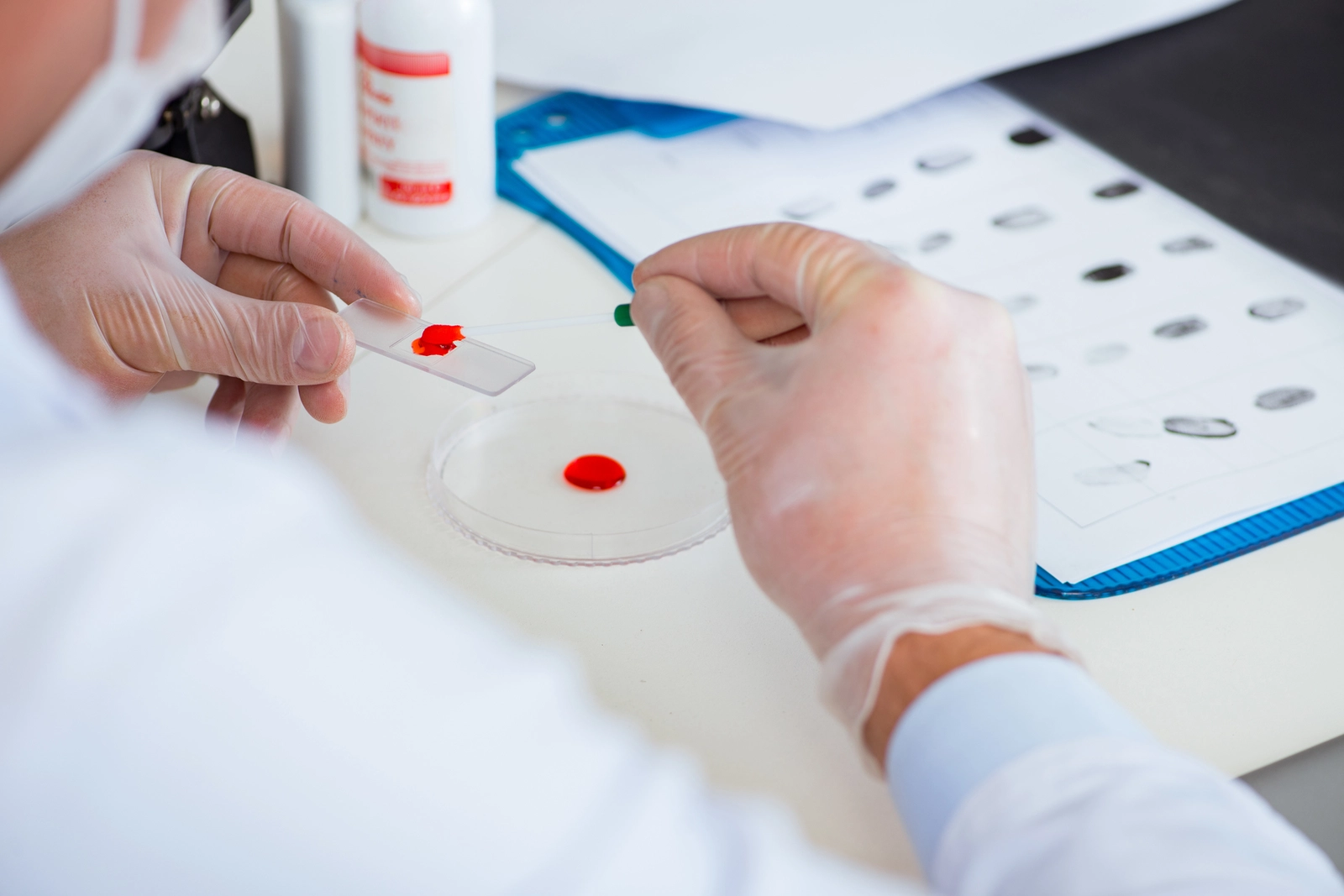IFS Therapy at Ascendant
Ascendant Helps You and Your Loved Ones Heal from Addiction
You have an innate and natural capacity for healing – and that’s why Ascendant’s Internal Family Systems (IFS) Therapy offers hope for those struggling with addiction This innovative approach recognizes that everyone is capable of healing and transformation. By gently guiding you to connect with this inner wisdom, IFS therapy opens new pathways to recovery, self-understanding, and lasting change.

What is IFS Therapy?
Internal Family Systems therapy is a non-pathologizing, collaborative, and evidence-based approach to psychotherapy developed by Dr. Richard Schwartz in the 1980s.[1] The therapy operates under the premise that individuals possess a complex inner world consisting of various “parts” or “sub-personalities,” which interact with each other and make up the individual’s internal system.
The goal of IFS therapy is to achieve harmony and balance within the internal system by understanding and integrating these different parts, addressing the emotional wounds or trauma they carry, and fostering communication and cooperation between them to heal from substance use and mental health concerns.[2]
Key Components of the IFS Model in Therapy
The Internal Family Systems model has several key components:[3]

-
- Self-Energy: IFS therapy believes that everyone possesses a core “Self,” which represents the pure essence of who we are. This Self is characterized by calmness, curiosity, courage, compassion, confidence, and creativity. Self-energy is an essential resource for the healing process, leading to self-compassion and self-leadership.
- Parts: These are the distinct aspects of our personality that have specific roles and functions within our internal system. Parts work can be categorized into three main types:
- Managers: These parts focus on managing the system’s daily functioning and maintaining control to prevent emotional pain or chaos.
- Exiles: These parts are typically wounded, burdened, or carry deep emotional pain or trauma. Managers often work to keep these parts hidden or suppressed.
- Firefighters: These parts become activated when the system is overwhelmed or in crisis. They work to distract or soothe the system, often through compulsive or addictive behaviors.
- Burdens: Burdens are emotional, mental, or physical pain that parts carry due to past trauma, experiences, or interactions with the external world that can hinder connectedness.
How Does IFS Therapy Work?
IFS therapy involves helping clients access their Self-Energy and use it as a resource to connect with, understand, and heal the various parts of their internal system:[4]
In summary, IFS therapy provides a framework for understanding and healing the complex inner world of individuals through the compassionate and collaborative exploration of their parts and inner system dynamics.
Substance Abuse
IFS Therapy for Substance Abuse at Ascendant
IFS therapy is integrated into our substance abuse treatment program to help clients explore and understand the various parts of their internal systems. This process aids in identifying the underlying emotional wounds or trauma that may contribute to their addictive behaviors:
Ascendant’s utilization of IFS therapy in our substance abuse treatment programs offers a comprehensive, compassionate, and effective approach to addiction recovery. By addressing the complex inner dynamics of those struggling with addiction, IFS therapy helps our clients achieve lasting healing and personal growth.

Efficacy of IFS Therapy
IFS has demonstrated promising results in the treatment of substance abuse.[5] As an evidence-based practice, IFS therapy holds significant potential for individuals, couples, and families struggling with addiction, addressing the complex emotional and psychological factors that often contribute.
Studies have shown that IFS therapy positively impacts various aspects of mental health, such as Post-Traumatic Stress Disorder (PTSD), symptoms of depression, dissociation, affect dysregulation, and disrupted self-perception (including feelings of guilt and shame).[6] Research supports that IFS therapy is effective in reducing symptoms of depression and addressing the effects of childhood trauma. Participants with a moderate-to-severe degree of PTSD prior to treatment showed significant improvements, with over 90% no longer meeting DSM criteria after 16 sessions.
In the context of addiction, IFS therapy focuses on understanding and addressing the underlying emotional wounds or trauma that may drive substance abuse. By exploring the internal system dynamics and promoting self-energy, clients develop a more compassionate and balanced relationship with their parts, leading to increased self-acceptance, emotional well-being, and resilience.
IFS Therapy NYC
What to Expect from IFS Therapy NYC
IFS therapy is a unique therapeutic approach that focuses on understanding and harmonizing the various parts of your internal system with a family therapist or other mental health professional:

Goal Setting
Your therapist will spend the initial sessions getting to know you and your reasons for seeking therapy. They may ask questions about your current challenges, past experiences, and family history. Together, you will identify goals for therapy and create a roadmap for your treatment.

Identifying Parts
A central component of IFS therapy involves recognizing and identifying the distinct parts within your internal system. Your therapist will guide you through this process, helping you explore the various roles, functions, and relationships between these parts.

Connecting with Parts
With the support of your therapist, you will begin to connect with your parts and develop a curious, compassionate, and understanding relationship with them. This process aims to cultivate self-awareness and encourage emotional healing.

Unburdening and Transforming
As you deepen your understanding of your parts, you will work towards releasing the emotional burdens they carry, such as pain or trauma from past experiences. This allows these parts to transform and adopt healthier roles within your internal system.

Promoting Self-Energy and Integration
Throughout the IFS therapy process, your therapist will help you access your core Self-Energy, which encompasses qualities such as calmness, courage, compassion, and confidence. By developing a more balanced and harmonious internal system, you can experience increased self-acceptance, emotional well-being, and personal growth.

Closure and Maintenance
As you progress through therapy and achieve your treatment goals, your therapist will work with you to prepare for the end of treatment. This may involve discussing strategies for maintaining the progress you’ve made and addressing any concerns or questions you have about your therapeutic journey.

IFS Therapy NYC at Ascendant
Are you ready to explore the depths of your internal world and unlock your true potential? At Ascendant, our experienced and compassionate team of therapists is here to guide you through the powerful process of Internal Family Systems therapy. Together, we will uncover the unique aspects of your personality, heal emotional wounds, and create a harmonious balance within your internal system.
Take the first step towards self-acceptance and personal growth by contacting Ascendant today to get started with our programs and practices for recovery.
Frequently Asked Questions about IFS Therapy
No, you do not need a specific problem or diagnosis to benefit from IFS Therapy. It is a versatile approach that can address a wide range of issues, from emotional distress and relationship problems to personal growth and self-discovery. IFS Therapy focuses on understanding and harmonizing your internal parts, making it applicable to various aspects of mental and emotional well-being.
IFS Therapy addresses internal conflicts by facilitating direct dialogues between conflicting parts. The process involves helping these parts communicate and understand each other’s perspectives and concerns. Through this dialogue, the therapist guides you in finding common ground and negotiating compromises. The aim is to resolve internal conflicts and achieve a more harmonious internal system where each part can work together constructively.
The role of an IFS therapist in NYC is to guide and support you through the exploration of your internal parts. They help you access and connect with yourself, facilitate dialogues between different parts, and assist in resolving conflicts and healing wounds. The therapist also provides a safe, empathetic, and non-judgmental space to encourage open exploration and integration of your internal experiences.
[1] About IFS. (n.d.). Www.foundationifs.org. https://www.foundationifs.org/about/about-ifs on August 9, 2024
[2] IFS Institute. (2023). The Internal Family Systems Model Outline | IFS Institute. Ifs-Institute.com. https://ifs-institute.com/resources/articles/internal-family-systems-model-outline on August 9, 2024
[3] Dempsey, S. (2022). Internal family systems therapy | APS. Psychology.org.au. https://psychology.org.au/for-members/publications/inpsych/2022/winter-2022/internal-family-systems-therapy on August 9, 2024
[4] 6 Step IFS Process to Jumpstart Healing. (n.d.). Www.pesi.com. https://www.pesi.com/blog/details/1511/6-step-ifs-process-to-jumpstart-healing on August 9, 2024
[5] Smith, J. A., Hayes, N. D., & Smock Jordan, S. (2018). Systemic Integration of IFS Therapy and 12-Step Facilitation for Substance Use: A Theoretical Discussion. Alcoholism Treatment Quarterly, 37(1), 60–74. https://www.tandfonline.com/doi/abs/10.1080/07347324.2018.1502032 on August 9, 2024
[6] Hodgdon, H. B., Anderson, F. G., Southwell, E., Hrubec, W., & Schwartz, R. (2021). Internal family systems (IFS) therapy for posttraumatic stress disorder (PTSD) among survivors of multiple childhood trauma: A pilot effectiveness study. Journal of Aggression, Maltreatment & Trauma, 31(1), 22–43. https://www.tandfonline.com/doi/full/10.1080/10926771.2021.2013375#d1e1209 on August 9, 2024

